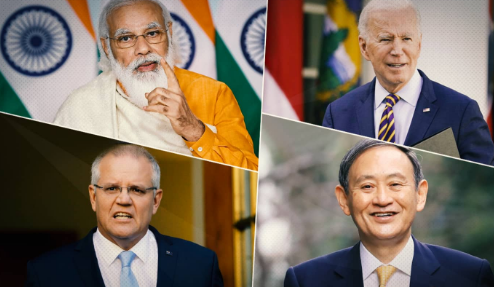The Quadrilateral grouping of four major world democracies — the US, Japan, India and Australia — routinely talks about a “rules-based global order” in the Indo-Pacific region. None of these countries will say it out aloud but it is no secret that a shared distrust of China is what brings them together. But what is the rules-based global order to which the Quad attaches so much importance? This question is especially important as Myanmar, a country that is important to the region in which the Quad seeks to assert itself, has slipped back into vicious military rule.
Read More: Delhi’s Afghan dilemma
The number of people shot dead by soldiers in the 76 days since the coup now exceeds 700. At an Idea Exchange at this newspaper earlier this month, Australian High Commissioner to India Barry O’Farrell was categorical that the Quad is “not an Indo Pacific United Nations”. But if the Quad is to be respected as something more than a grouping that guards the strategic interests of four disparate nations against China’s rise, Myanmar presents an opportunity to make that clear.
To buy our online courses: Click Here
At the first Quad summit, the leaders of the four countries pledged to work towards restoring democracy in Myanmar. As the only country in the Quad that shares a land border with Myanmar, and the world’s largest democracy, India should be crucial to those efforts. Yet, Delhi’s public posturing on the situation in Myanmar suggests the opposite. Minister of External Affairs S Jaishankar said earlier this week at the Raisina Dialogue that every country is “located differently and our relationships with Myanmar are each unique”.
Even if the security of the people of Myanmar counts for nothing in the Quad’s calculus, India could still lead the way in syncing the group’s democratic credentials with realist strategic interests. For this, it will have to view the coup in Myanmar as a development that affects the peace and security of the Indo-Pacific. Delhi already views the presence on its soil of the Rohingya as a security concern. The influx of Myanmar people over the border into Mizoram and Manipur could become another source of instability.
Myanmar’s importance to China as a gateway to the Indian Ocean through Kyaukphyu in the Bay of Bengal, and the Tatmadaw’s close links to Beijing, make this coup a threat beyond its borders. Delhi must open its ears to the people of Myanmar, against whose wishes the Chinese port project at Kyaukphyu and other infrastructure projects are coming up. It is in China’s interests to back Myanmar’s military against the country’s people, but not India’s — and not the Quad’s.




